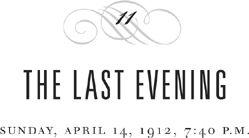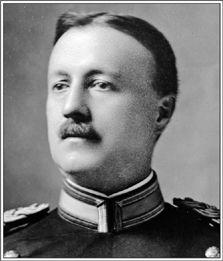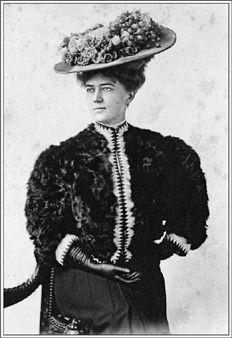Gilded Lives, Fatal Voyage: The Titanic's First-Class Passengers and Their World (25 page)
Read Gilded Lives, Fatal Voyage: The Titanic's First-Class Passengers and Their World Online
Authors: Hugh Brewster
Tags: #Ocean Travel, #Shipwreck Victims, #Cruises, #20th Century, #Upper Class - United States, #United States, #Shipwrecks - North Atlantic Ocean, #Rich & Famous, #Biography & Autobiography, #Travel, #Titanic (Steamship), #History

R
ené Harris was hailed like a wounded hero as she entered the Ritz Restaurant on Harry’s arm. Bruce Ismay and Dr. O’Loughlin stood up to greet her from their table by the entrance, George and Eleanor Widener left their dinner guests to do the same, and the Duff Gordons were graciously sympathetic as the Harrises passed by them. Shortly after they had
sat down with the Futrelles, Captain Smith, too, stopped by to compliment René on her spirit. “
It made me feel that a broken arm was an asset,” she later noted.
The Widener dinner party had gathered at seven-thirty in the restaurant’s reception room and was soon seated at a long table that extended into an alcove not far from the entrance. Mahala Douglas, who dined on the other side of the alcove with her husband, noticed through an opening in the carved paneling that the captain was seated at the head of the table, with Eleanor Widener to his right and Archie Butt on his left. She also remembered that the tables were decorated with pink roses and white daisies and that the food was superb: “
caviar, lobster, quail from Egypt, plover’s eggs, and hothouse grapes and fresh peaches.” Mahala Dutton Douglas was the second wife of Walter Douglas, a Quaker Oats heir and mill owner from Cedar Rapids, Iowa, who possessed a net worth equal to that of most of the millionaires at the Wideners’ table. Widowed in 1899, Douglas had married Mahala in 1906 and had recently retired at the age of fifty to enjoy life with her in a French Renaissance mansion they had built on Lake Minnetonka near Minneapolis. The couple were returning from a five-month European tour in search of furnishings for the lakeside home that they had dubbed Walden.
Mahala had an artistic temperament and a flair for writing, and she would later describe how the evening passed quietly to the strains of Puccini and Tchaikovsky from the string trio outside in the reception room. She also maintained that “
any claims of excessive gaiety” from the Widener table were “absolutely unfounded.” Eleanor Widener confirmed that the captain consumed no alcohol at dinner (as White Star regulations forbade), and Marian Thayer claimed that she heard no discussion at the table of icebergs being in the neighborhood since “
Mr. Widener, Major Butt and I were engrossed in other subjects during the entire time of the dinner.” It seems, however, that it was mainly Archie Butt who engrossed Marian Thayer that night. In an emotive letter sent to President Taft one week after the disaster, she wrote:
From the moment we met we never moved from each other for the rest of the evening. Never before have I come in such close contact immediately with anyone. He felt the same & we both marveled at the time at the strangeness of such a thing, for we both realized it while actually opening our innermost thoughts to each other. He told me much about his mother and their letters.… He spoke with deep enthusiasm of leaving his mark and memorial of truth to the world with those letters which should be published after he had gone.
In case such instant intimacy could be misconstrued, Marian added: “He said I was just like his mother and opened his heart to me & it was as though we had known each other well for years.” She even goes on to suggest a past-life connection, a still-exotic notion for the time:
It was the strangest sensation and felt as tho’ a veil was blown aside for those few hours eliminating distance between two who had known each other always
well
long, long before and had just found each other again—I believe it. Otherwise we could not have met just then and talked as we did.
Marian Thayer and Archie Butt
(photo credit 1.19)
(photo credit 1.41)
Observing this intent discussion from across the table, Eleanor Widener may have been less than thrilled that one of her prized guests was being monopolized. She had likely expected Archie to regale them with Washington anecdotes rather than leave her to engage the captain in dinner conversation. Yet she was evidently not marooned with the captain for long, since Marian Thayer reported that the meal was served very quickly and that at eight-thirty the party went out into the reception room for coffee, with Captain Smith departing by eight-forty-five. That an elaborate multi-coursed dinner should be completed in an hour seems surprising, and other guests in the restaurant that evening claimed that the
Widener party actually lasted longer. Yet Marian Thayer’s timeline agrees with that of Second Officer Lightoller, who stated that the captain arrived on the bridge at eight-fifty-five. Smith’s first words to Lightoller were about how cold it had become. Lightoller replied that it was only one degree above freezing and said that he had advised the ship’s carpenter to make sure that the liner’s water supply didn’t freeze.
“
There is not much wind,” the captain then observed.
“No, it is a flat calm as a matter of fact,” Lightoller replied, and Smith repeated, “Yes, a flat calm.”
“It is a pity there is not a breeze,” Lightoller said, meaning that there would be no waves breaking on the icebergs to make for easier sighting. “In any case,” he continued, “there will be a certain amount of reflected light from the bergs.” The captain agreed, noting that even with the blue side toward them, the white outline of the icebergs would still be visible. But he added that if it became at all hazy, they would have to slow down, and as he left the bridge at 9:20, said to Lightoller, “If in the slightest degree doubtful, let me know.”
Back in the restaurant’s reception room, the rest of the Wideners’ guests were just finishing their coffee. Archie Butt, it seems, continued to be absorbed in conversation with Marian Thayer, and it was perhaps here, away from the table, that he confided to her that he “
did not know how he was going to stand the rushing life he was returning to.” From the descriptions in Archie’s letters to Clara, “the rushing life” is an apt term for the fevered existence he led in Washington, where long days at the White House were followed by evenings of dinners, receptions, and cotillions. Marian Thayer goes on to describe to President Taft how Archie had agreed to meet her the following afternoon for a session where she would teach him “a method of control of the nerves through which I had just been with a noted Swiss doctor.” To acknowledge that one had been receiving treatment of this kind was a remarkably candid confession to make in 1912, particularly to the president of the United States. Mrs. Thayer then tells Taft that she thought “it would be a very wonderful thing for him [Archie] if he could just get hold of it [the nerve control technique] for he was very nervous … and we were going to work so hard over it the rest of the time on board.”
“Nervous” was then a general term for mental distress and what afflicted Archie might today be diagnosed as an anxiety disorder or even depression. By making himself indispensable, and always available, to the president and to social Washington, Archie’s “rushing life” had brought him to the brink of nervous collapse. And despite his time away, he still suffered from black moods, as his cousin and her husband in London had observed. Archie knew that the pace during the coming fall election would be blistering, but he felt unable to leave his post. Doing so, he claimed, would seem disloyal and look as if he were abandoning Taft for Roosevelt. It was this quandary and his anxiety about returning home that kept him talking seriously with Marian Thayer for some time after the dinner.
A jollier mood prevailed at the Harrises’ table, where May Futrelle recalled that her husband and Henry Harris discussed the latest American plays and “
everybody was so merry. We were all filled with the joy of living.” There was an equally festive air two decks below in the Palm Room, where “our coterie” had assembled after dinner and the orchestra was playing requests. Helen Candee suggested a little Puccini while Hugh Woolner wanted to hear some Dvořák. Helen noticed that “the prettiest girl” asked for dance music and “
clicked her satin heels and swayed her adolescent arms to the rhythm.” When the orchestra began packing up their instruments at nine-fifteen, Helen and her admirers were in no mood to end the party and so decided to walk up the grand staircase to the Café Parisien. As they sat down at a table for seven, Mrs. Candee saw that the only other occupied table was “
made gay by the party of a president’s aid [sic],” indicating that by then Archie had put on a more social face and was entertaining a few of the guests he had neglected at dinner.
May Futrelle
(photo credit 1.3)
“But how cold it is, how arctic!” said Helen as she drew close her scarf around her neck.
“Something hot, then,” Woolner suggested to the waiter, who took orders for Scotch and lemon, hot whiskey and water, and warm lemonade. But the cold didn’t put a chill on their mood, as Helen recalled:
How gay they were, these six. The talkative man [Gracie] told stories, the sensitive man [Kent] glowed and laughed, the two modest Irishmen [Colley and probably Smith] forgot to be suppressed, the facile Norseman [Björnström-Steffansson] cracked American jokes, the cosmopolitan Englishman [Woolner] expanded, and the lady felt divinely flattered to be in such company.
Inside the restaurant, the Harrises and Futrelles lingered over dinner, as did Walter and Mahala Douglas. Another table was occupied by the Minahans, the Irish-American doctor from Wisconsin and his wife and sister who had boarded in Queenstown. The Duff Gordons had already left, with Lucile donning the squirrel coat she had worn to dinner on account of the cold. She and Cosmo had gone up one deck to the lounge, where they sat with a young New York couple named Edgar and Leila Meyer, who had also dined in the restaurant that evening. Lucile was aware that twenty-five-year-old Leila was the daughter of Andrew Saks, the owner of Saks Fifth Avenue, who had died while dining at Sherry’s on April 8. The Meyers had received a telegram in Paris the next day and had quickly booked passage home on the
Titanic
for the tenth. While chatting with them, Lucile brought out her autograph book, which was a “confessions” book, a then-popular novelty with pages where friends could write in appropriate comments about themselves under such headings as “Likes,” “Abominations,” and even “Madnesses.” Edgar Meyer, who was twenty-eight, took Lucile’s book, and when he came to “Madnesses,” laughed and wrote, “
I have only one—to live”—a sad irony given that only hours remained to him.




